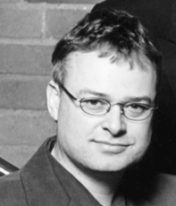Klaas Rozemond
Winner Dissertation Prize 1998
Dissertation
Constructive Interpretation of Dutch Criminal Procedure Law
Supervisors: Prof. mr. T.M. Schalken, Prof. mr. A. Soeteman en Prof. mr. J.W. Fokkens
Nomination: VU Amsterdam, Faculty of Law
Report by the selection committee
The significance of this dissertation lies in its thorough analysis of the problems presented by the criminal procedure law – an analysis based on underlying values, interests and principles – and in the subsequent endeavour by the author to find coherent solutions. On the basis of the theories of Paul Scholten, Ronald Dworkin and John Rawls, a constructivist method of interpreting rules of law is described, enabling judges to solve hard cases of criminal procedure law. The legal questions considered are those to which the present of criminal procedure law gives either no clear-cut answer or one which is not regarded as acceptable. The constructivist method is based on the principle that law can be construed as a normative entity. This method is then applied to a number of difficult aspects of criminal procedure law (the interpretation of the term body search, whether statements by anonymous witnesses can be used as evidence and the regulation of police methods of investigation). A number of fundamental principles of criminal procedure are analysed with the aid of the constructivist method. Finally, the normative structure of the criminal procedure law is described on the basis of the purpose of criminal proceedings (determination of guilt or innocence), the principle of the equality of persons, and the vital interests which are at issue in criminal procedure. The author advocates a constructive interpretation of rules of law: in difficult cases the judge should indicate the normative principles on which his decision is based.
